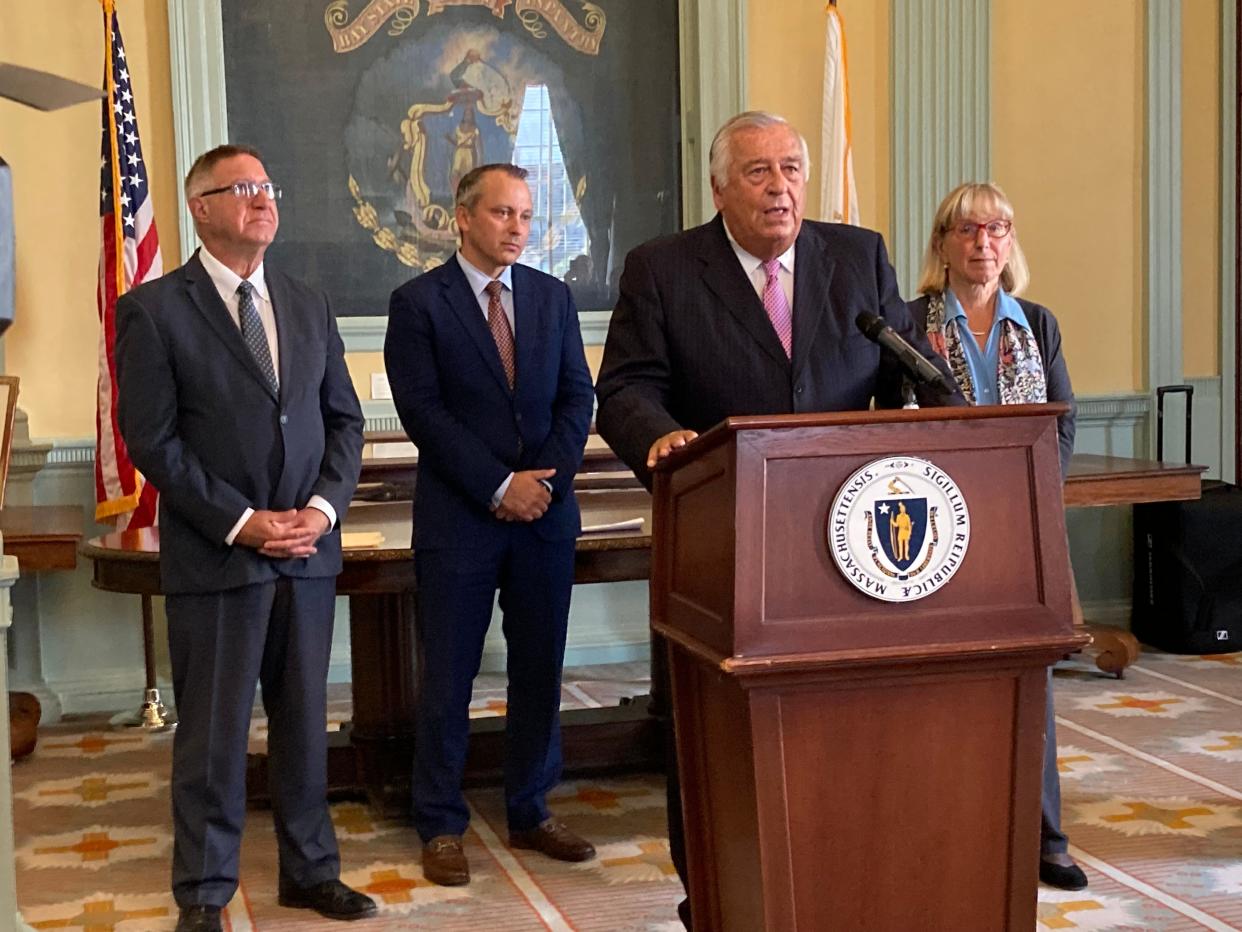Top Mass. lawmakers have a deal on tax relief. Here's what you should know

- Oops!Something went wrong.Please try again later.
BOSTON - There’s something for everyone in the new tax relief bill announced by legislative leaders Tuesday.
Lawmakers came up with a comprehensive package they claim is the largest bipartisan tax relief proposal in over a generation.
“This bill could help alleviate many financial burdens on families, seniors and renters,” said Senate President Karen Spilka, D-Ashland.
In formulating the proposal, which still needs to be voted on by both the House and the Senate before finding its way to the governor’s desk, lawmakers sought to help as many residents in as many ways as possible. The cost: some $519.3 million for the current fiscal year, with an annual cost of almost $1 billion by 2027 when all its measures are implemented.
“Proposal after proposal, iteration after iteration,” lawmakers worked hard to bring it close enough together to get a deal, said House Speaker Ronald Mariano, D-Quincy. Included in the bill is a measure to close the marriage loophole for high-income earners. It requires taxpayers filing joint federal taxes to file jointly in Massachusetts as well.
A main driver behind the bill was to increase the child and dependent tax credit for low-income families. Spilka estimated that a low-income household with two children could see an extra $1,000 at tax time.
The highlights
Increases in the tax credits for dependents — children, disabled adults or seniors — from $180 to $310 this reporting cycle and increasing to $440 per in the 2024 taxable year. The expanded credits also eliminated the cap on the number of dependents a household can claim. Legislators calculate the changes will benefit 565,000 Massachusetts families and believe it is the most generous in the country.
Estate tax: Heirs of estates valued at $2 million or less will not pay taxes on the value of the property; the state grants a $99,600 uniform credit.
Earned income tax credit: Increases from 30% to 40% of the federal credit allowance, benefiting some 400,000 families with incomes under $60,000.
Senior circuit beaker tax credit: This yearly subsidy for the state’s senior residents doubles from $1,200 to $2,400.
Rental deductions: Renters, some 800,000 strong in Massachusetts, will be allowed to deduct an extra $1,000 a year, up to $4,000 of their housing costs.
Capital gains: The bill reduces the tax on short-term capital gains, from 12% to 8.5%. And businesses based in Massachusetts will no longer face a sales tax apportionment system that factors in property, payroll and sales. Only sales will be considered, in a move the legislature hopes will encourage companies to stay in state.
Addressing the housing crisis
On the housing front, legislators sweetened the deal for investment in construction of dwellings. Changes include benefits for developers of both low-income and market-rate housing especially, in so-called Gateway cities such as Worcester and Fitchburg.
For the Housing Development Incentive Program, the tool that facilitates development of market-rate housing in certain cities, the bill increases the statewide cap from $10 million to $57 million for one-time use, with a $30 million annual cap. Legislators believe the cap increase will spur $4 billion of private investment in the development of more than 12,500 homes in Gateway cities.
There’s an increase in the low-income housing tax credit, up $20 million to $60 million annual authorization. The authorization cap increase could provide enough funding to facilitate the creation of thousands of new affordable units.
And for landlords, municipalities will be able to offer a local property tax exemption for units rented by low-income residents.
Other perks
More money for septic tank replacement or repair. The legislation triples the tax credit available to $18,000 and allows a $4,000-a-year deduction.
Lead paint abatement credit: $3,000 for full abatement or $1,000 for partial abatement.
Dairy tax credit to support the state’s farmers and dairy industry.
Student loan repayments by employers are not considered income and exempt from taxation.
Apprentice tax credits to help workforce development.
Senior property tax volunteer program: Increases to $2,000 the amount seniors can work off their property taxes through a volunteer program.
This article originally appeared on Telegram & Gazette: What to know about Mass. legislative leaders tax relief plan

